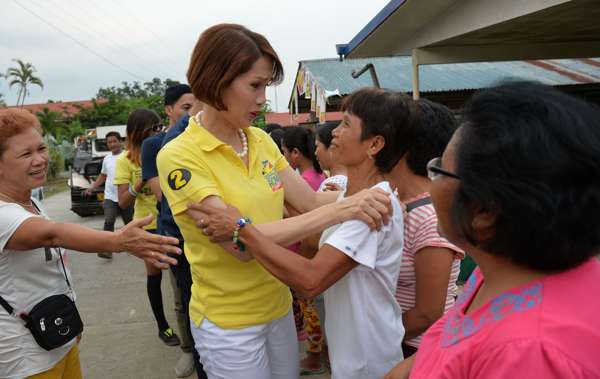LGBT Rights in The Philippines are Invisible or Non Existent
Why denial of a political voice means gay rights in the Philippines remain in the closet
Reuben James Barrete says religious and moral prejudices, coupled with U-turns by lawmakers, show true acceptance for the LGBT community in the Philippines will be elusive without access to political dialogue
The Philippines, with one of the most colourful and vibrant gay communities in Asia, claims to be on the crest of homosexual tolerance. However, the general population, particularly the older generation, seems to think LGBT rights and issues shouldn’t be at the top of the political agenda on “moral” grounds and the perceived threat to social order.
A 2013 Pew Research Centre survey in 39 countries found that 73 per cent of Filipinos thought homosexuality should be accepted by society, with an even higher percentage (78 per cent) among younger respondents.
Social acceptance only portrays a superficial inclusion of the LGBT sector, not their holistic integration
In July 2015, then Davao City mayor Rodrigo Duterte expressed his support for lesbian, gay, bisexual and transgender rights and famously announced that he disapproved of any form of discrimination against gay people. His support for the community evoked strong admiration from some and even gave him significant LGBT backing for the presidency. He then declared he would push and advocate for same-sex union, as part of his campaign promise. But, after winning, President Duterte went back on his promise and cited that, according to the Philippine Civil Code, marriage is a union between a man and woman.
The quest for LGBT rights and stigmatisation of gays in the Philippines continues, regardless of how tolerant Filipinos are. Their social acceptance only portrays a superficial inclusion of the LGBT sector, not their holistic integration, in society.
A Catholic devotee raises her hands during a procession ahead of the Black Nazarene feast day celebrations in Manila on January 7. Religious and moral standards of the older generation are a primary impediment to gay rights in the Philippines. Photo: EPA
It is the younger generation that sturdily supports LGBT rights, seeking their institutionalisation through legal and political means, and advocating for marriage equality and against discrimination. The general stance of older generations, strongly influenced by the moral standards of Catholicism and religious thinking, is viewed as one of the primary legal impediments and parallels the huge role played by politics.
Philippines leader calls US envoy ‘gay’ for ‘meddling’ in election
In 2009, the Ladlad party, representing the LGBT community, was denied party-list accreditation by the election commission to contest the 2010 polls, on the grounds that it advocated “sexual immorality” and “immoral doctrines.” The disconnect is clear with the public declarations of politicians supporting gay rights.
`````Geraldine Roman campaigns in the north of Manila last April. Photo: AFP
…. made it past the challenges, becoming the country’s first transgender lawmaker; she had the steadfast support of LGBT groups who believed gender equality is a basic human right. But the same congresswoman, who posted on her Twitter page that “LGBT rights are human rights. We are all human beings created by a loving, compassionate God”, voted in the House of Representatives to bring back the death penalty. That sparked a backlash from supporters who had expected her to defend life and human dignity.
OPINION
Promises made by politicians to protect and defend gay rights seem to be a free banner that can be used to support their own political interests and schemes, rather than serving true LGBT interests and rights.
Denial of socio-economic opportunities to gay people because of their sexuality is an alarming issue
In my time as a development worker, I have met numerous gay people with diverse stories. In the province of Samar, I met Ruby, a transgender woman and single parent to an adopted son, who told of how her application in Metro Manila to be a sales agent at a mall was rejected on account of her sexuality.
Denial of socio-economic opportunities to gay people because of their sexuality is an alarming issue. Anti-discrimination legislation pending in Congress seeks to prohibit employers from including sexual orientation or gender identity in hiring criteria.
Being gay in the Philippines is still associated with and portrayed as a manifestation of weakness. In Zamboanga City, I talked to Yash, an openly gay Muslim man who experienced extreme discrimination from his family. He recalled both verbal and physical abuse; and he still has nightmares.
The struggles of the LGBT community in the Philippines are often hidden by the colours of the rainbow: pain and grief masked in laughter, but with hope for true acceptance. For the LGBT community to gain greater recognition in society and on the political stage, it is imperative to create a conceptual framework for the community in politics.
Reuben James Barrete is a development worker focusing on human rights and social protection. He is finishing his master’s degree in international studies at the University of the Philippines
This article appeared in the South China Morning Post print edition as:
LGBT rights in the Philippines still in the closet


Comments